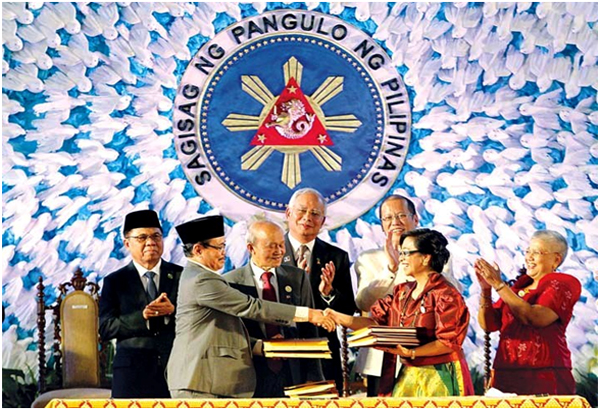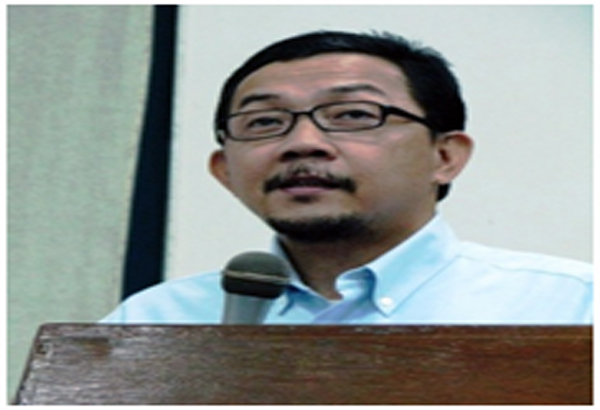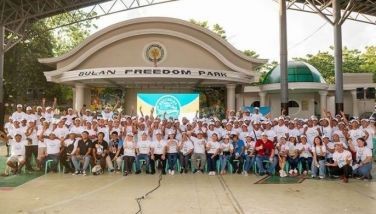Unpacking the Peace Process
February 16, 2015 | 12:00am

OPAPP
The tone and substance of the recent Senate hearings on Mamasapano make it seem as if the peace process is now in shambles, if not on life support altogether. The stakes, political and economic, remain high among elites and common folk alike — all stakeholders in a long and protracted set of wars.
Amid calls to set aside the draft of the Bangsamoro Basic Law or BBL
(http://www.gov.ph/2014/09/10/document-the-draft-bangsamoro-basic-law/), I sought the view of Dr. Julkipli Wadi, a highly respected scholar and Dean of Islamic Studies at the University of the Philippines. Though a Tausug from the Sulu Archipelago, he is acutely aware of the promise, as well as the many perils, of the BBL for all of Mindanao and, indeed, the entire country.
Since he has written extensively about the intricacies of the peace process, I began by asking him about aspects of the process that gave him serious pause.
He pointed out the difficulty of negotiating peace amid the glaring lack of Muslim representation in the national government. Today, there are only 10 Muslim Congressmen and zero Senators in the Legislature. "There are over 8 million Muslims that badly need representation. It was better during the time of Cory [Aquino] because at least we had 2 senators. Why do we need representation in these zones of power? It’s because these are the entities that have the final say on the direction of the Bangsamoro Political Entity.”
This lack of Muslim representation has serious effects. Dean Wadi continued: “There is no one from any of the branches of government that can [presently] articulate what is good for Mindanao and for the Moro areas. This deficiency in our institutions needs to be addressed if we want to have a comprehensive approach in solving the Mindanao conflict. At the end of the day, if the question of power is not addressed, all we will have are a series of never-ending, failed experiments.”
What are the other flaws of the peace agreement as it currently stands, I asked?
“Strategically, there are deficiencies,” he replied. “The challenge is how to reach out to the people on the ground. Indonesia and the OIC have been left out of the talks in favor of Malaysia. No one should have been left behind. If people feel that they don’t have ownership of the peace process, they will pose new demands.”
“There is a need to include other groups, like the MNLF and even the BIFF and the ASG in the peace process," Dean Wadi noted. I myself had grave misgivings about some of these assertions, which seemed to require serious qualification, especially with respect to rogue, armed groups. But I was willing to consider his point. Certainly, there is little doubt that many Tausugs had been alienated when MNLF’s Nur Misuari (a Tausug) was no longer a part of the peace process; since the MILF are primarily Maguindanaoan, the status of the Maranaos is also a question. Although issues are ultimately ideological in nature, there is little doubt that ethnic considerations are of considerable importance in this context.
He continued: "But this will have to be the responsibility of the next administration. Right now, government doesn’t have any sustained partnerships beyond the MILF. The Philippines suffers from policy discontinuity.” With respect to MNLF and MILF, this much was true, for all sorts of complicated reasons, but that will have to be another story for another column.
In the meantime, the current BBL has a significant provision regarding revenue sharing. I asked the Dean what he thought about the proposed split of annual revenues between the Bangsamoro and the national government.
“I have no particular recommendation on the ratio on sharing. What is important is to put this into context of our demand for autonomy. The poor areas of Muslim Mindanao have been left behind by developed areas. If the national government will continue to control strategic resources, the development of areas under the Bangsamoro Political Entity will take a longer time to happen.”
There have also been debates about the place of Shariah Law in the BBL. To what extent should the peace agreement accommodate Shariah Law?
“Previously," Dean Wadi pointed out, "the Shariah courts only heard cases based on personal laws, specifically on marriage and divorce. Under the proposed BBL, the powers of the Shariah Court should include hearing cases on commercial, civil and criminal laws. This means the expansion of the powers of the Shariah Court, which begs the question of whether or not the national government needs to pass a special law on Shariah courts. Perhaps there is simply a need to harmonize national laws and the Shariah law.”
“But there will be no separate body or office for the Shariah Law. Instead, Shariah Courts, which are classified as special courts, will be established and will be under the supervision of the Supreme Court. The inclusion of Shariah Law would further address the demands for autonomy.”
But while others expressed unhappiness with the subordinated place of “Shariah Law” to the “Philippine Constitution” in the preamble of the BBL, Dean Wadi stressed the absolute priority of the Constitution.
“From the 1970s to the 1990s, the constitutional process was a source of contestation. The Philippine Constitution has been a controlling mechanism to prevent the possibility of secession.” However, he points out that there remains some ambiguity. “In the provisions of the BBL, the phrase “with due regard to Philippine laws” is used rather than the more explicit assertion of the “supremacy of the Philippine Constitution.” But these considerations aside, he is confident that the BBL will pass constitutional muster. The draft will most likely go through many changes and be “watered down.” But he feels that the grant of greater autonomy would be “a way [to avert secession and to] guarantee that the Republic will remain intact.”
As many others have pointed out, the BBL, if it is to survive political and legal challenges, will have to undergo many changes. Dean Wadi recognizes these problems. However, he also emphasizes the historical context of peace negotiation and highlights the singular significance of the BBL.
“Historically, the notion of a Bangsamoro sub-state is actually not new. Mindanao and the Sulu archipelago have been through more than 100 years of political experiments. Since the American colonial period, all sorts of governing institutions have been created and abolished — 24 all told. Under the Philippine Republic alone, from 1956 onwards, we had the Commission on National Integration and offices like the Southern Philippines Development Authority, the Ministry of Muslim Affairs, and the Lupong Tagapagpaganap ng Pook in 1979. And then, of course, you have the ARMM, followed by the expanded ARRM, then the SPCPD, the Maglampco Socsargen Council, and the Bangsamoro Juridical Entity. Some of these experiments were promising, but they all failed. The Bangsamoro sub-state is the latest in a long line of such experiments."
But what about the recent Mamasapano incident? How will it affect the fate of the BBL?
Dean Wadi: “The dilemma of the MILF is that, while they have partnered with the Executive branch, there’s been no confidence building measures with the Legislature. They should court the legislators and, at the end of the day, they will emerge strong.”
“Another problem of the MILF is the process of decommissioning [of arms], which is far from complete. Thus, they have naturally maintained a defensive posture while the decommissioning has been under way. Unfortunately, the SAF operation could not have taken place at a worse time. If it was done after the decommissioning, the AFP and the MILF could have partnered together to go after the terrorists. Instead, the Senate hearings show the distrust between the military and the police. Hence, the lack of coordination. If government forces can’t trust each other, how much harder will it be for them to trust the MILF, which is outside government?”
He continues: “It will also take time to professionalize the Bangsamoro Police. And given the practice of rido (that is, clan feuds that trigger retaliatory violence), the problem of security will continue to loom large for the people in the region. The processes of demobilization and decommissioning may not be enough to address such deeply-rooted problems.”
I asked him what would happen if this current peace process were to break down and the BBL shunted aside.
Dean Wadi: “A new round of war is possible. The government has given enormous hope to the MILF. The other side of hope is frustration. And frustration may well lead to aggression. The dilemma of the government is the lack of space to maneuver and time to adjust.”
“It’s unfortunate that the hearings have been suspended. It was projected that it would take one year and five months to pass the BBL and to hold the plebiscite. The law should be passed by March or June of this year. It will take another 120 days before the plebiscite, so that would be in October. It will be delayed further if the constitutionality of the BBL is raised before the Supreme Court. By then, it will already be election season. A delay in the BBL is a delay in the prospects of a better Mindanao.”
The Dean offered these final words:
“Our role now is to secure our national territory, strengthen democracy and rebuild our institutions to prevent the external problem of terrorism.”

Dr. Julkipli Wadi moviepictures.org
BrandSpace Articles
<
>
- Latest
- Trending
Trending
Latest
Trending

By COMMONSENSE | By Marichu A. Villanueva | 19 hours ago

By THE CORNER ORACLE | By Andrew J. Masigan | 19 hours ago
Recommended























